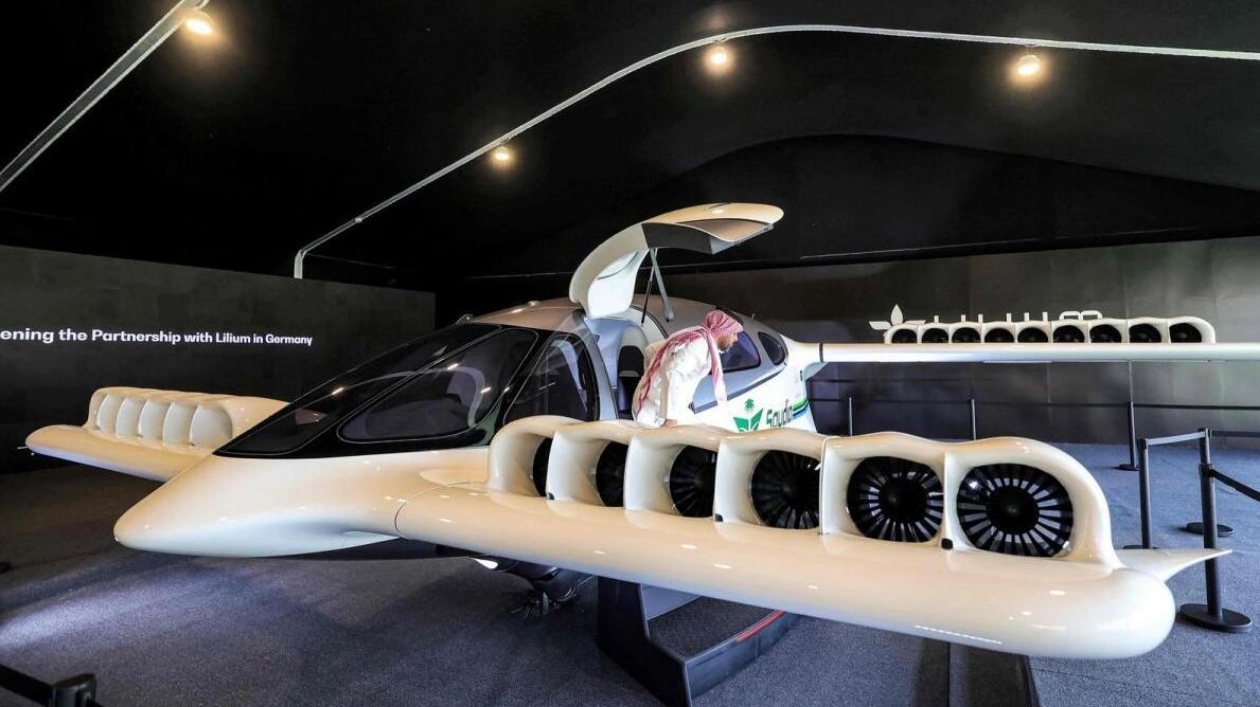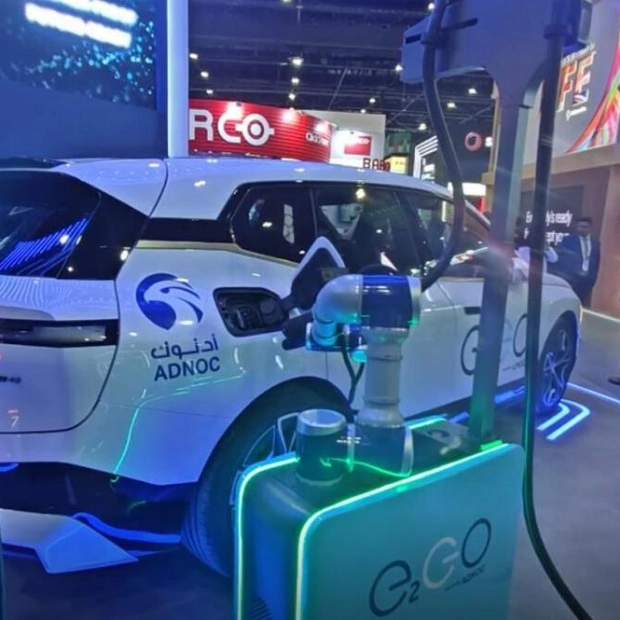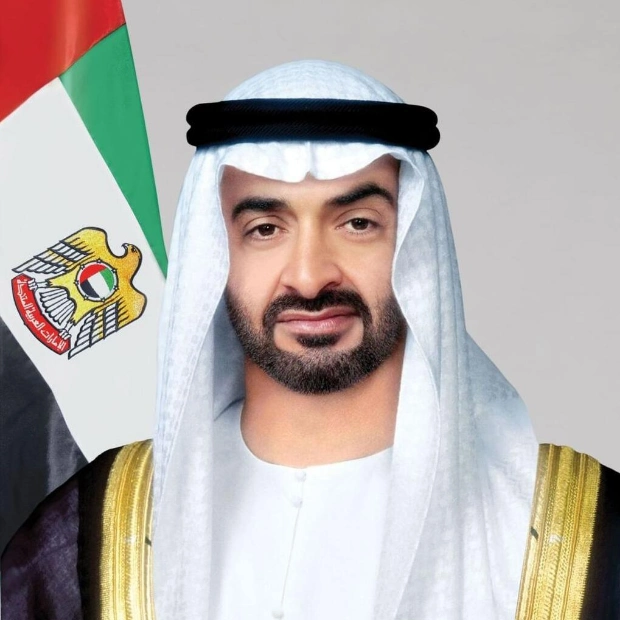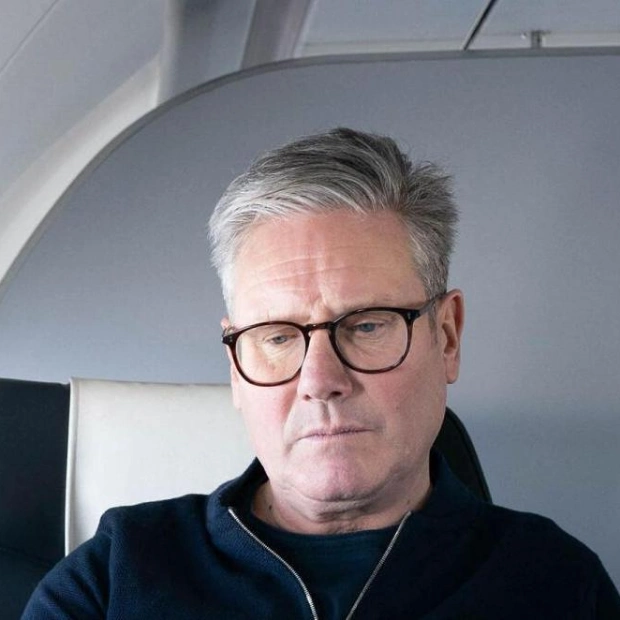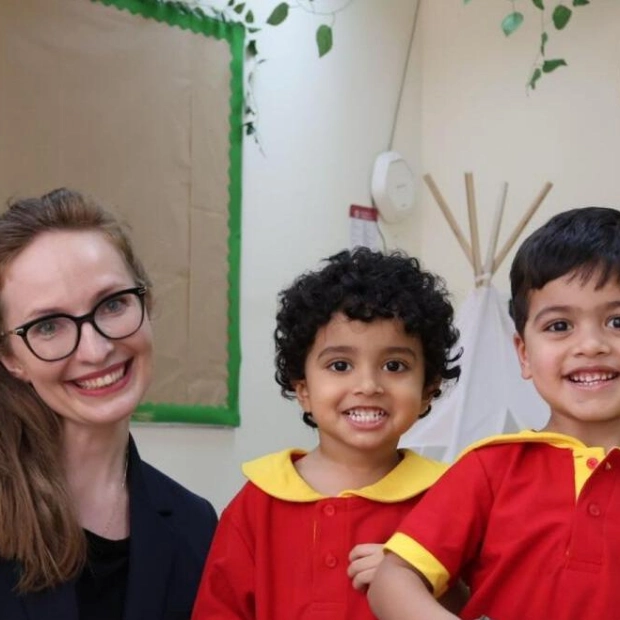A visitor examines a Saudia Airlines electric Vertical Take-Off and Landing (eVTOL) Lilium jet showcased at the Global Logistics Forum in Riyadh on October 14, 2024. — AFP
Saudi Arabia's national airline is collaborating with a financially strained German company to acquire electric jets for routes to new luxury resorts and the sacred city of Makkah, according to an official. The aircraft from Munich-based Lilium will offer direct connections to challenging-to-reach areas along the Red Sea coast and transport Muslim pilgrims directly from Jeddah to Makkah, which lacks an airport, said Saudia's communications affairs manager, Razan Shaker.
"Our strategy is to facilitate access to locations and cities that currently lack an airport or are difficult to reach," she explained to AFP during a logistics forum in Riyadh. The plans involve transporting pilgrims to the renowned Fairmont Makkah Clock Royal Tower hotel, near Makkah's Grand Mosque, where "we are in the process of establishing a helipad," she added.
In July, Saudia revealed its purchase of 50 Lilium electric Vertical Take-Off and Landing (eVTOL) jets, with options to acquire 50 more. The airline anticipates receiving the Lilium jets, which accommodate four to six passengers and have a range of up to 175km, starting in 2026. This order is considered "the largest reported firm order of eVTOL aircraft by an airline planning to operate the aircraft," signaling a significant commitment to electric aviation, according to a statement.
Neither Saudia nor Lilium has disclosed the financial details of the deal, but Daniel Wiegand, Lilium's chief engineer for innovation, mentioned that the aircraft generally costs between $7 million and $9 million. A recent filing by Lilium with the US Securities and Exchange Commission revealed that the company urgently requires additional capital to sustain its ongoing operations and is heavily reliant on securing a German government loan. Lilium is also seeking funding from private investors, Wiegand noted, acknowledging that "it is no secret...that we are currently raising funds."
Saudi Arabia aims to increase annual aviation traffic to over 330 million passengers by the end of the decade as part of Crown Prince Mohammed bin Salman's "Vision 2030" reform plan to diversify the oil-dependent economy. Transport Minister Saleh Al Jasser highlighted that a planned new airport in Riyadh, designed to handle 120 million passengers annually, is central to the aviation strategy, with discussions also underway for a significant expansion of the Jeddah airport. These ambitious plans have intensified skepticism regarding Saudi Arabia's climate commitments, which include achieving net zero carbon emissions by 2060.
